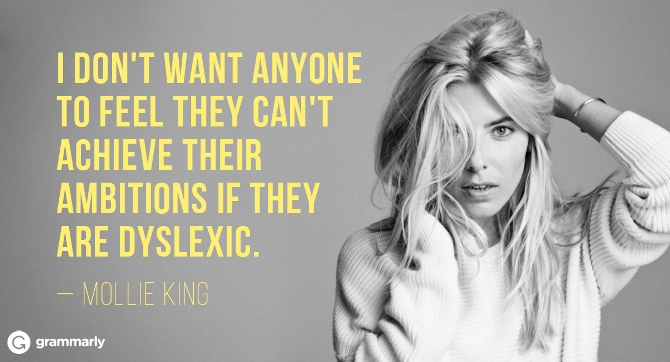
By Nelson Lauver, Author of Most Un-Likely To Succeed
I’m nervous and thinking about turning around and getting back in my car. Just ring the doorbell, I tell myself. I find the courage, and my blind date answers the door with one hand while holding back Lola, an exuberant 80-pound rescued pit bull mix, with the other. I can’t believe my eyes! Jane could be a model. She’s stunning, with a movie-star smile. I soon learn that she is also good-natured and witty, and she can cook!
Jane has it on good authority that I’m not a serial killer, or she wouldn’t have invited me to her home for dinner in the first place. It’s been an hour or so, and I’m starting to relax. I think the wine is helping.
Perhaps it’s premature but I’m smitten. However, if we’re to have a future, I need to know if she was paying attention in English class, because I wasn’t. Can she spell? How is she at putting a sentence together? Can she collaborate? I need to know because I’m a professional writer with dyslexia, and I depend heavily on those I trust to proofread. As luck would have it, Jane had paid attention in school, and that being the case, I ask her to marry me. Not that first night, of course, but some time later.
My wife is my biggest cheerleader. We don’t often think of people when we think of compensatory strategies to deal with dyslexia, but my wife is responsible for my writing career reaching a higher level.
I have Alexa, too. While voice-activated Alexa (A.K.A. Echo) from Amazon can’t help me with syntax or comma placement, she does just fine as a substitute spelling coach when Jane isn’t home.
Another compensation tool I use is the spell/grammar check function in Microsoft Word. It works about 50 percent of the time. The other 50 percent of the time it flashes an error message with the phone number for Hooked on Phonics.
I much prefer video and audio to heavy reading. However, I do find an ebook much easier to decode than standard print; don’t know why. Also, larger text and double-spaced lines make reading easier.
Voice-to-text software doesn’t work well for me, while other dyslexics swear by it. So, by all means, try it!
I have many writer friends who fluidly produce prose worthy of admiration. For that reason, and no other, I hate their guts—in a nice way of course. I, on the other hand, hunt and peck the keyboard. The slow pace gives me lots of time to think about what I’m saying. I think it makes my writing more conversational.
Nonwriter friends praise me, telling me that they could never manipulate words into pictures or vice versa. To that, I suggest an introduction to my editor.
Like most dyslexics, I think in pictures and feel dyslexia gives me an advantage over other writers. But the fact remains that I can’t spell, have weak punctuation skills, and chicken scratch penmanship that is no better than that of your average second grader or family doctor.
The world will forgive you if you can’t ride a bike, play the violin, or kick a soccer ball, but society won’t forgive you if you can’t spell, read, or write well. For this reason, many bright and talented dyslexics are sent to the back of the line. It’s not fair, but it’s a fact of life. Even with modern technology, it’s difficult to find strategies for improving one’s writing.
I’m always on the lookout for any promise of help in my fight for better wordsmithing. Several months ago I stumbled across Grammarly, an automated, online proofreader and grammar/spelling checker.
Grammarly goes far beyond the standard spell-checkers that we’ve all come to know and loathe. It’s like having a friendly coach sitting next to you as you write. And while I am not going to replace my human editor, it’s clear that the job description has changed. My editor no longer needs to spend so much time with a red pen marking heavy corrections. We now have much more time for discussing characters and storylines, and that makes for a better reader experience!
In my twenty-one years as a writer, I have found Grammarly to be the single most valuable tool for making me a better writer. I recognized its benefits instantly. A dyslexic writer no longer needs to seek out an attractive grammar cop and go to the expense of an engagement ring. Although, I’ll never regret ringing that doorbell.
Looking for more tools? These will help.
Nelson Lauver is the host of the American Storyteller Radio Journal and author of the award winning memoir Most Un-Likely To Succeed. He is also a keynote speaker, humorist, syndicated broadcaster, strategist, entrepreneur, voice-over artist, co-founder of the Jane and Nelson Lauver Foundation, and director of ProblemTank, a neurodiverse thinktank.







